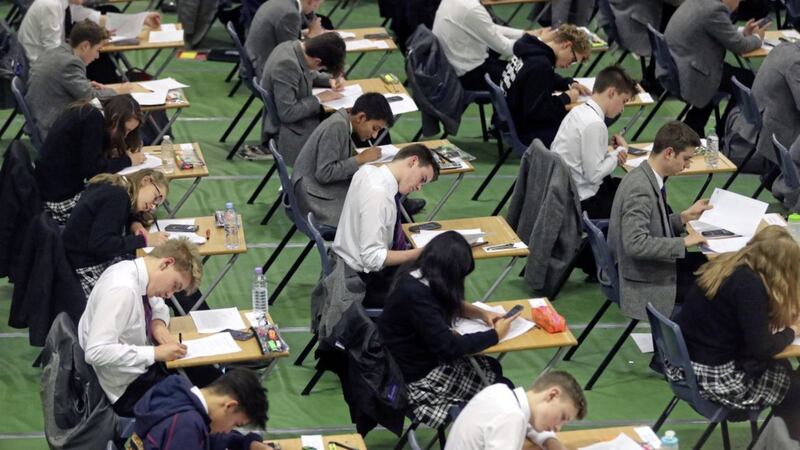MAJOR changes to the GCSE grading system will do more harm than good, a teachers' union has warned.
Members of the NASUWT, meeting at its annual conference in Manchester, heard concerns that the new system will result in added pressure being put on pupils.
The reforms mean the traditional A*-G grades have been axed in English and maths, and will be replaced by the 9-1 grades - with 9 the highest result.
The changes will be brought in for all subjects in future years.
In the north, familiar A*-G grades at GCSE are to remain - but a new C* is to be created.
Pupils will also be allowed to receive grades from English exam boards who use the 9-1 scale, however. The changes mean that boards in England who said they would no longer offer qualifications in the north, will now continue to provide them.
Most pupils take exams offered by the north's exams board, the CCEA. However, many take papers set by boards from England too. The AQA and OCR are the two most popular English boards - there were about 40,000 entries by Year 12 pupils in 2014.
The new grading system in England is to be anchored to the alphabetical grades at two points - the bottom of the grade 4 will be anchored to the bottom of the grade C, and the bottom of the grade 7 will be anchored to the bottom of the grade A.
Supporters of the switch by English awarding bodies have argued the move is necessary to allow more differentiation between students.
But there have been concerns raised over a lack of clarity about the new system.
NASUWT general secretary Chris Keates said: "Maintaining high standards of education is critical and it is important that the qualifications system is kept under review to ensure it is meeting the needs of pupils, employers and the further education sector.
"However, these changes have been driven by political imperative, rather than the needs of young people.
"The government has consistently sought to portray GCSEs as 'broken' and 'dumbed down' qualifications in order to push through its vision of an elitist, narrowly focused curriculum and qualifications system which risks failing to meet the needs of the majority of young people.
"The changes to exam grading have created huge uncertainty for pupils, teachers, parents and employers which will be difficult for schools to manage.
"Schools already buckling from excessive workload are now facing even more bureaucratic reform and young people, already experiencing rising rates of anxiety and mental ill health, will face even greater pressure to perform."








